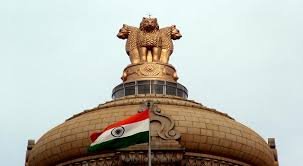This judgment addresses a cluster of civil appeals concerning contractually appointed Assistant Professors in Government Engineering and Polytechnic Colleges in Gujarat.
For over two decades, the State of Gujarat had numerous vacant posts for Assistant Professors and resorted to appointing individuals on an ad hoc or contractual basis. These Assistant Professors, many selected on merit, claimed parity in pay and benefits with regularly appointed Assistant Professors, asserting they performed identical duties.
The legal journey involved conflicting decisions from the High Court of Gujarat:
Single Judges generally ruled in favor of the Assistant Professors, granting them the minimum pay scale.
Some Division Benches upheld these single-judge orders, dismissing the State’s appeals.
However, in other instances (leading to some of the present appeals), Division Benches allowed the State’s appeals, denying parity and dismissing the writ petitions of the contractual Assistant Professors.
The Supreme Court was tasked with resolving these appeals, specifically those arising from judgments of the High Court dated 14.02.2023 and 22.03.2024.
Law Involved:
The core legal principle at play is the constitutional principle of “equal pay for equal work”.
The judgment also touches upon the dignity and fair remuneration due to academicians, recognizing them as the “intellectual backbone of any nation” whose contribution merits respect and fair treatment.
The Court’s decision is guided by established precedents, including the principles affirmed in cases like Jagjit Singh and Acharya Madhavi (Supra).
Reasoning:
The Supreme Court found that the contractually appointed Assistant Professors were performing identical duties and functions as their regularly appointed counterparts, often working for decades with “abysmally low monthly emoluments”.
The Court underscored the vital role of educators in shaping society and stated that denying them fair remuneration diminishes their motivation and undermines the nation’s “intellectual capital”.
It was noted as “disturbing” that the State continued to make ad hoc and contractual appointments despite a significant number of sanctioned posts lying vacant, without justification for sub-classification regarding pay and benefits.
The Court rejected the State’s argument that contractual appointments, by their nature, preclude claims for parity, especially when the work performed is indistinguishable.
The Supreme Court observed that some Division Benches had erred by not adhering to the discipline of law and precedents set by co-ordinate Benches that had previously upheld the principle of parity for similar employees.
Holding:
The Supreme Court allowed the appeals filed by the contractually appointed Assistant Professors.
It held that the contractually appointed Assistant Professors are entitled to the minimum pay scale admissible to regularly appointed Assistant Professors.
They are also entitled to arrears calculated at the rate of 8% per annum from three years preceding the date of filing their respective writ petitions.
The appeals preferred by the State of Gujarat were dismissed, thereby overturning the High Court judgments that had denied parity to these contractual Assistant Professors.
Shah Samir Bharatbhai & Ors vs State of Gujarat & Ors
Supreme Court: 2025 INSC 1026 (DoJ 22-08-2025)






